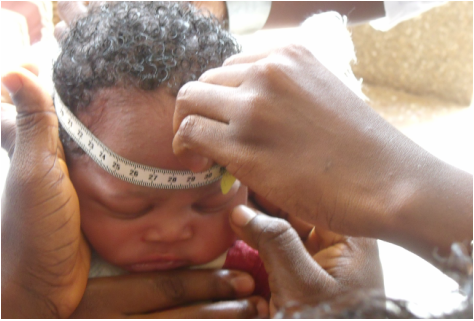The prenatal health and nutrition (phan) study
Approximately 7% of infants are born preterm in Rhode Island, leading to a higher risk of infant deaths, disabilities, and developmental delays. Maternal lead exposure is a well-known risk factor for preterm birth that is particularly relevant in Rhode Island where approximately 80% of housing is identified as high-risk for containing lead-based paint. The Oaks Lab is interested in studying micronutrients that may act as a buffer against lead exposure for pregnant women and whether cortisol, a biomarker of stress, might be a possible mechanism that mediates any associations. We are conducting a pilot study in Providence, RI among 30 pregnant women to collect data, including dietary intake, blood samples, and saliva samples, that will help us begin to answer these questions.
The International Lipid-Based Nutrient Supplements (iLiNS Project)
The iLiNS Project is a set of nutritional supplementation trials conducted in sub-saharan Africa. The Oaks Lab is involved in the trials conducted in Ghana and Malawi which enrolled women during pregnancy and provided nutrition supplements during pregnancy, lactation, and early childhood. As part of the research team along with collaborators from UC Davis and University of Ghana, this work has included conducting a follow-up study of the children at 4-6 years of age. We are now in the process of a second follow-up study that spans the period when the children are 8-12 years of age. We aim to continue long-term follow-up with the participants from the trial in Ghana.
micronutrient impact of oysters in the diet of women shellfishers
Among West African coastal countries, anemia prevalence among women ranges from 35-52%. Anemia (hemoglobin < 12 g/dL) is a risk factor for low birth weight and preterm birth and women with anemia have an 84% increased risk of postpartum hemorrhage, a leading cause of maternal death globally. Low dietary intake of iron is a common cause of anemia and zinc and iron deficiencies are common in West Africa. The Oaks Lab is interested in oysters as a possible solution to anemia and zinc and iron deficiencies, as one serving of oysters meets 100% of the zinc Recommended Dietary Allowance (RDA) and 26% of the iron RDA for women. With a team of collaborators, including colleagues from University of Ghana and the University of Rhode Island Coastal Resource Center, we have collected data from over 700 women shellfishers across Ghana and are are currently in the process of data analysis.
magnesium intake and glycemic markers
Low magnesium intake has been shown to be associated with an increased risk of type 2 diabetes mellitus (T2DM) in several studies done in high-income countries. However, very few or no studies have been done in Africa where many countries have a growing rate of T2DM. This is particularly concerning for women of reproductive age, as diabetes during pregnancy can lead to adverse birth outcomes and higher risk for future diabetes. It is unknown whether magnesium deficiency is contributing to the prevalence of T2DM in Ghana as the average magnesium intake in the current diet is unknown. We have therefore conducted a pilot cross-sectional study, among 63 women in Ghana, to investigate the association between magnesium intake and glycemic markers.





